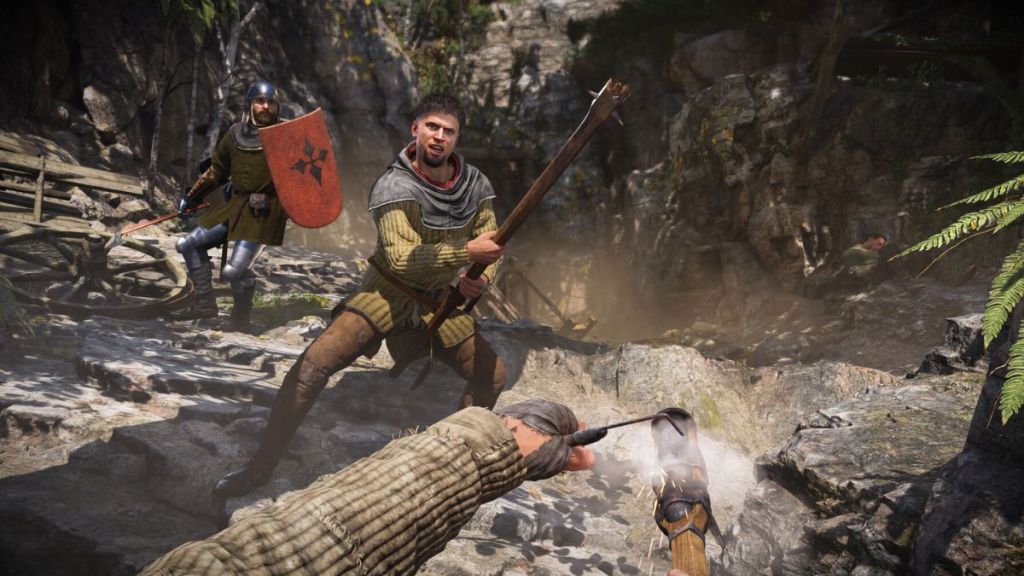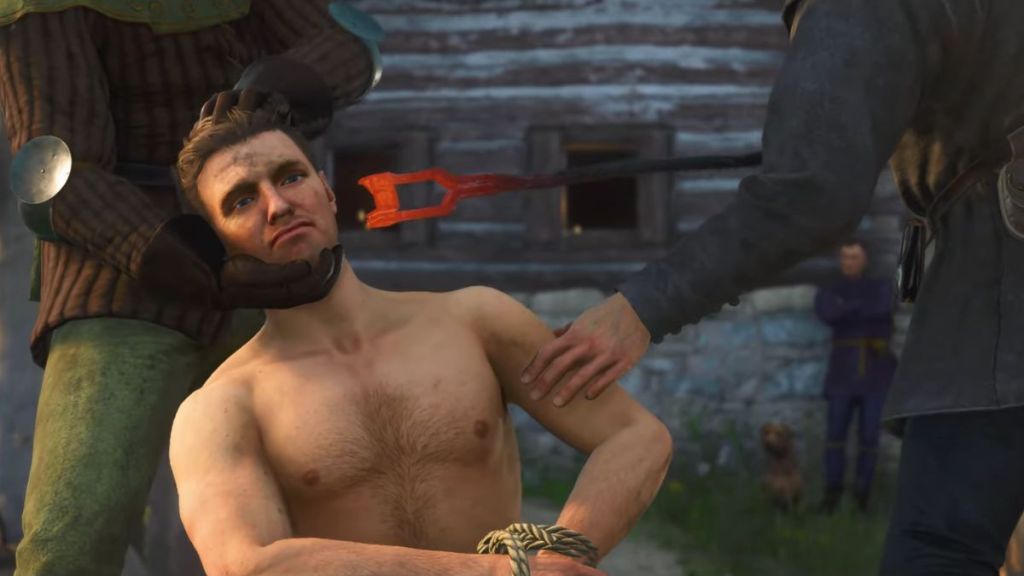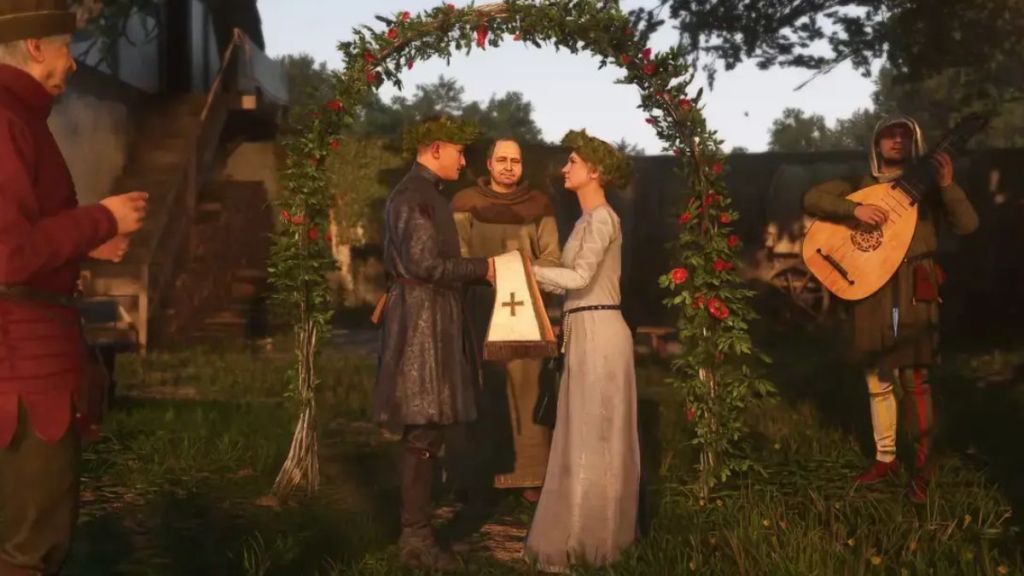
It’s that time of the year again, people, and with almost all of 2025’s heavy hitters out of the way, we can now wind down, bask in the festive joy, and celebrate our favorite games of the year via the vessel known as the Game Awards. This year’s TGA is shaping up to be monumental, primarily due to the Expedition 33-shaped juggernaut that threatens to sweep the awards floor in unmitigated fashion. But for all that brouhaha around Sandfall’s debut, I’m sticking to my guns in saying that Kingdom Come: Deliverance 2 is the game of the year.
I can practically hear the mental clank of all the pitchforks being swooped up and swung in my direction for speaking against the masses’ favorite. But I strongly believe that had KCD 2 been released in the middle of the year (instead of being a whole nine months away from awards season), we’d all be forecasting a 50/50 tussle between the two releases rather than crowning Clair Obscur immediately.
That said, the Game Awards voting window is still open, so call me a Hollywood exec, for I’m here to curry favor and secure your vote for a truly exceptional video game.
KCD 2 Sets a New Benchmark for Reactivity in RPGs
It’s almost baffling how reactive Kingdom Come: Deliverance 2 (review) is. When I try to picture the cogs that keep the medieval machine ticking, I imagine systems upon systems set in byzantine order, somehow functioning in pure harmony. Even so, it’s unbelievable that this game works, and that it doesn’t collapse under the weight of its own ambition. I mean, how is it even possible to cram a full-fledged reputation system with brutal crime and punishment, alongside a plethora of branching quests, and realistic character management down to a tracker for your dog’s obedience level?

The quintessential trademarks of a meticulously crafted RPG are all here. You’ve got NPCs with full day-and-night cycles, a class hierarchy that determines their social stature, and a variety of ways in which they’ll react to your presence. But they’ll also do things that are just so painfully obvious, yet they’re present in very few other games.
For instance, if you walk into a town and decide to drop a valuable object or a piece of clothing in view of other NPCs, they will absolutely take note. They’ll wait until you’re out of the immediate vicinity, skulk towards the discarded object, pick it up, count their lucky stars, and move along with their day. The item won’t just sit there and disintegrate into nothing after a few days because that’s not how things actually work.
Similarly, if you put on your sneakiest slacks and go shoplifting at a nearby vendor, the lifted goods will be marked as stolen. Unlike so many other RPGs, you cannot reap an instant profit by selling the stolen item to the same vendor – they don’t have rocks for brains, and they’ll report you to the guards instantly. Speaking of which, if a guard sees you carrying said item, they too will identify the theft and catch you red-handed. If you try to outsmart the system by selling to a different vendor, you’ll still run the risk of the stolen item being identified (because merchant’s union). If all else fails, you’ll simply need to wait for your crime’s notoriety to die down and for the item’s stolen status to disappear because, just like in real life, people move on.
In case you do end up getting caught, there are layers to the deliverance of justice as well. Your first misdemeanour will result in a trip to the bailiff, who’ll have you set up for a humiliating display in the stocks. Your second offence will result in an even more humiliating canning, where Henry will literally be beaten like a dog. Should your nefarious ways continue, the bailiff will resort to branding you with a hot iron, forever damaging your reputation within the region. And if you’re still up to no good, it’s a direct trip to the gallows.

This is, objectively, the best crime and punishment system implemented in a video game. What I described before is the best handling of vendors and stolen goods in a video game. When you factor in the fact that NPCs will react to your clothing, your scent, and the presence of your dog (amongst a host of other things), and judge you accordingly, KCD2 can boast of having the most reactive world in a video game. And these are just three systems in an open-world RPG that includes combat, blacksmithing, alchemy, archery, diplomacy, and so much more.
I’d sooner harp on and on about all the absurdly brilliant interactions I’ve had in its iteration of Bohemia than close out this argument. Like how I was caught by a sleeping NPC while robbing a house because the stench of my Henry woke him up. Or how a guard saw me lob a chicken leg in my dog’s direction and still waltzed in, nabbed it off the floor, and returned to his post like nothing had happened.
What I’m trying to say is that you won’t get non-scripted interactions like this anywhere else, because there is nothing like Kingdom Come: Deliverance 2.
The game is so singular in how effortlessly it treads the line between overwhelming realism and a booze-filled romp through the heartlands. It masterfully induces a daily regimen of bathing your Henry, feeding your Henry, and sharpening your Henry’s many instruments of war because, first of all, it’s satisfying, and second of all, it’s how people have started their days across centuries of human civilization. Once the chores are ticked off, you’re free to pursue all manner of adventure – be it painting a prized bull or having a run-in with the Inquisition.
And again, all of this is just one element of a massive RPG. There’s still an epic tale to engage with, punctuated by top-tier dialogue, a fleshed-out combat system to master, and meaningful relationships to forge with some truly memorable characters. While I understand that Expedition 33 can easily lay claim to all three of these fundamental traits, nothing I’ve ever played is as reactive, and dare I say, as immersive as Warhorse’s masterpiece.
Writing So Rich in Nuance and Character, I’d Rather Take This “Expedition”

For the sake of spoilers, I’m not going to delve too deep into the game’s narrative – it’s a story that deserves to be experienced first-hand. But what I will highlight is, in my opinion, the seminal moment of KCD 2: the Semine wedding. Without giving too much away, the wedding serves as a conclusion, or rather a reflection, of the choices you made and the friendships you formed within the region.
If you took the time to seek out characters and uncover their stories, the wedding turns into the gratifying culmination of your actions. You’ll stroll across the lawn, joyously pointing at familiar faces, exchanging pleasantries, engaging in silly shenanigans, and discovering the precise impact of the choices you made during their quests. This is a subtly confrontational way of giving you closure, and it makes a future decision all the more difficult.
The reason this moment succeeds is due to the writing. Throughout my 100+ hour playthrough, KCD 2’s dialogue was consistently sharp, blending wit, gravitas, and historical authenticity. Dialogue never feels wasted; every conversation reveals character, context, or consequence, whether you’re bartering with a merchant, interrogating a suspect, or sharing a quiet moment with a companion. Even small exchanges carry weight, reflecting the game’s commitment to making the world feel alive and meaningful.
The skill checks during dialogue share the remarkable penmanship. If you’re successful, Henry will whip up the most convincing tale in microseconds, but even if you fail, it’ll still be fun to watch him blurt out an excuse, for well, an excuse that gets increasingly ridiculous the longer he bumbles his way through it.
Speaking of the writing, I really appreciate just how willing Warhorse were to confront mature topics. From suicide to anti-semitism, some genuinely adult themes in this game are all handled with nuance and sensitivity. They’re not there for the sake of posturing, and instead, the devs go out of their way to provide the historical context required to understand how these manifested in medieval Bohemia.
I shudder to imagine the sheer amount of work and painstaking attention to detail required to craft something that feels so intentional in every single aspect. Kingdom Come: Deliverance 2 is an uncompromising, unflinching RPG that is brutal yet whimsical, layered yet straightforward, familiar yet foreign, and genius all over. Games like it come around once in a console generation, and we’d be remiss not to give it the GOTY award that it truly deserves.
So, have I convinced you to vote for KCD 2 at The Game Awards? Let us know in the comments.









